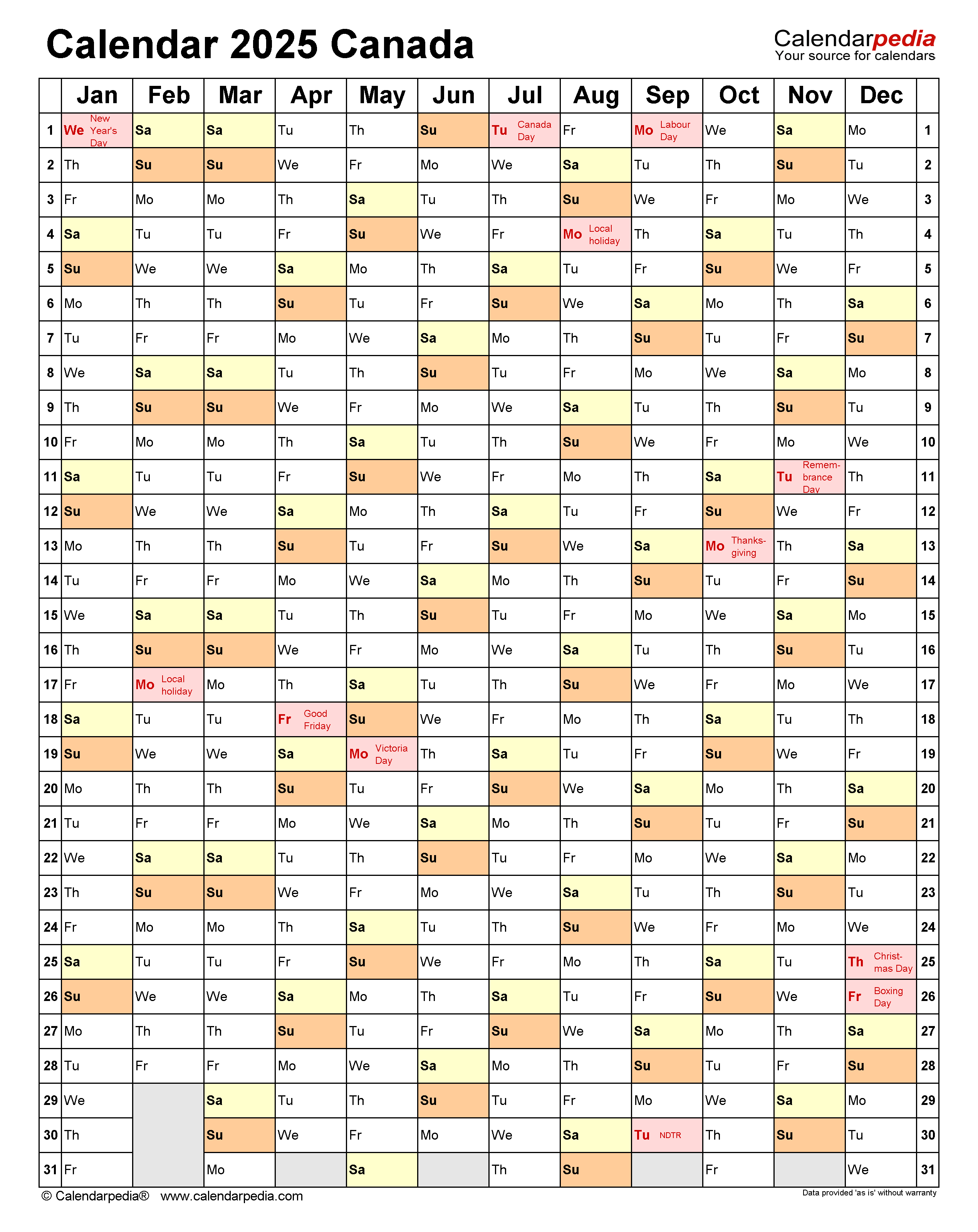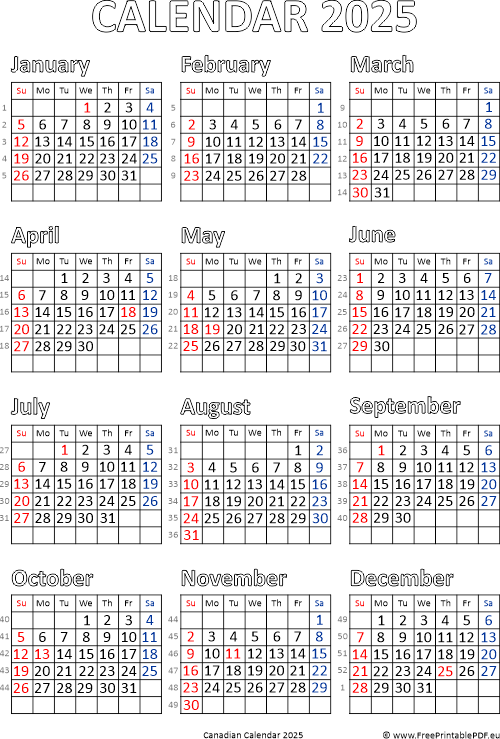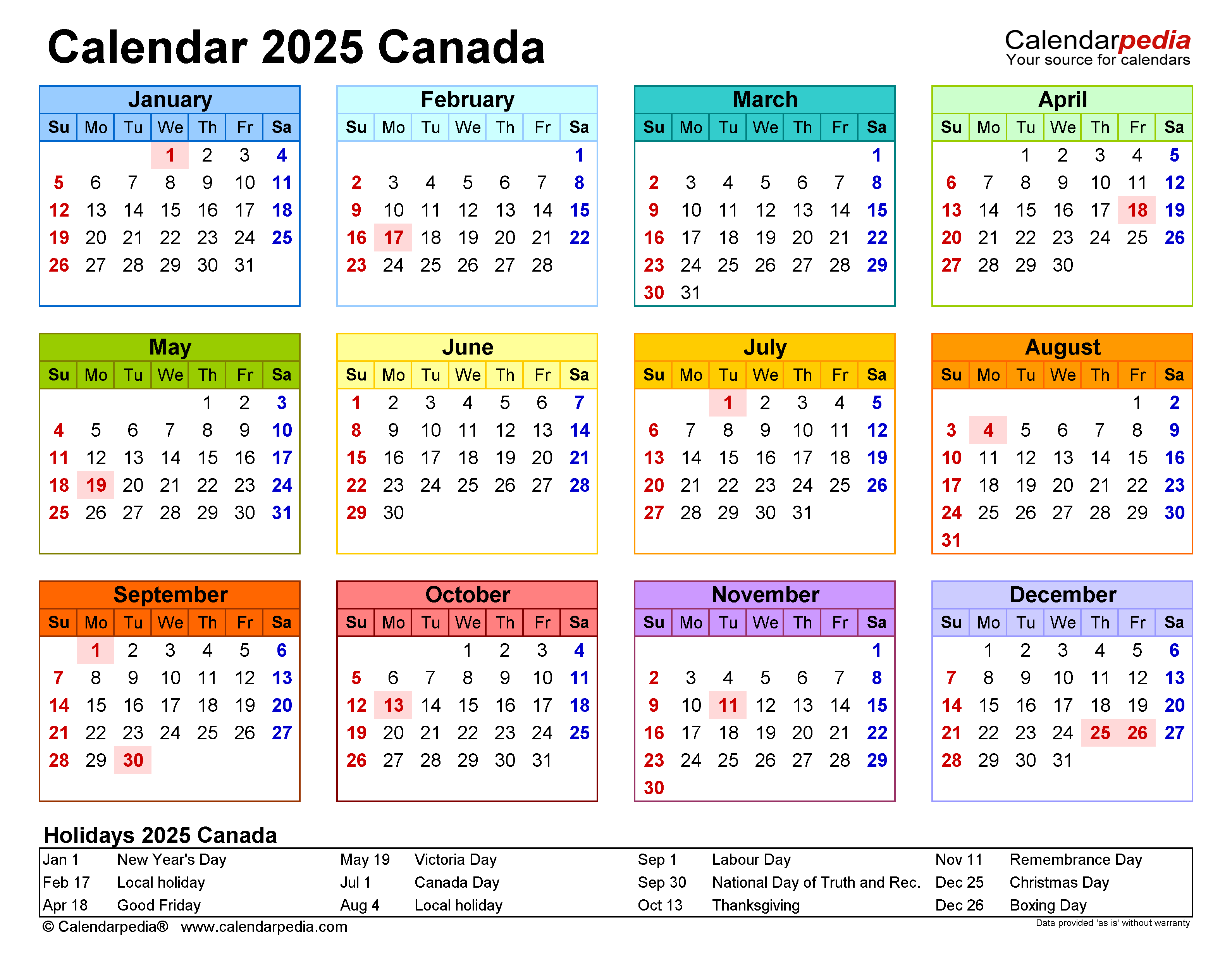Canadian Stat Holidays 2025 A Comprehensive Guide
With enthusiasm, let’s navigate through the intriguing topic related to Canadian Stat Holidays 2025: A Comprehensive Guide. Let’s weave interesting information and offer fresh perspectives to the readers.



Statutory holidays in Canada, commonly known as public holidays, are designated days of rest and commemoration. These holidays provide opportunities for Canadians to observe significant events, celebrate national heritage, and enjoy time off work. In 2025, there will be 11 statutory holidays observed across Canada. This article provides a comprehensive overview of these holidays, including their dates, significance, and traditions associated with each.

New Year’s Day marks the beginning of the Gregorian calendar year. It is a time for reflection on the past year and anticipation for the year to come. Canadians celebrate New Year’s Day with fireworks, parties, and resolutions.

Family Day is a provincial holiday observed in all provinces and territories except Quebec. It is a day dedicated to celebrating the importance of family and spending quality time with loved ones. Activities typically include family dinners, movie nights, and outdoor activities.

Good Friday commemorates the crucifixion of Jesus Christ. It is a solemn day of religious observance for Christians. Many Canadians attend church services and observe the day with fasting and reflection.

Easter Monday is the day after Easter Sunday, which celebrates the resurrection of Jesus Christ. It is a day of joy and celebration for Christians. Many families gather for Easter meals and egg hunts.

Victoria Day is a federal holiday that commemorates the birthday of Queen Victoria, who reigned as Canada’s monarch from 1837 to 1901. It is a day for barbecues, picnics, and outdoor activities.

Canada Day is the national holiday of Canada, celebrating the anniversary of the country’s confederation in 1867. It is a day of great pride and patriotism, marked by fireworks, parades, and community gatherings.

Labour Day is a holiday that recognizes the contributions of workers to Canadian society. It is a day for parades, picnics, and speeches advocating for workers’ rights.
Thanksgiving Day is a holiday that expresses gratitude for the harvest and the blessings of the past year. It is a time for family gatherings, turkey dinners, and pumpkin pie.
Remembrance Day, also known as Armistice Day, commemorates the end of World War I and honors the sacrifices of Canadian veterans. It is a solemn day of remembrance, marked by ceremonies, parades, and the wearing of poppies.
Christmas Day is a Christian holiday that celebrates the birth of Jesus Christ. It is a day of religious observance, family gatherings, gift-giving, and festive traditions.
Boxing Day is the day after Christmas and is observed as a statutory holiday in most provinces and territories. It is a day for shopping, visiting family, and enjoying the post-Christmas festivities.
In addition to the 11 federal statutory holidays, some provinces and territories have additional holidays that are specific to their region:
Canadian stat holidays hold significant historical, cultural, and religious importance. They provide opportunities for Canadians to reflect on their shared history, celebrate their diversity, and connect with their communities. Each holiday is associated with unique traditions and customs that have been passed down through generations.
For example, New Year’s Day is often marked by resolutions and the singing of "Auld Lang Syne." Family Day is a time for family dinners, board games, and outdoor activities. Good Friday is a day of religious observance and fasting for many Christians. Easter Monday is celebrated with egg hunts and family gatherings. Victoria Day is a day for barbecues, picnics, and flying the Canadian flag.
Canada Day is a time for national pride and celebration, with fireworks, parades, and community events. Labour Day is a day for parades, speeches, and advocacy for workers’ rights. Thanksgiving Day is a time for family gatherings, turkey dinners, and gratitude. Remembrance Day is a solemn day of remembrance and reflection, with ceremonies, parades, and the wearing of poppies. Christmas Day is a day of religious observance, gift-giving, and festive traditions.
Statutory holidays have a significant economic impact on Canada. They provide opportunities for businesses to offer sales and promotions, and for individuals to spend time with family and friends. However, they can also lead to reduced productivity and increased costs for businesses.
According to Statistics Canada, the average cost of a statutory holiday for businesses is estimated to be around $1 billion. This includes the cost of wages, lost productivity, and increased sales and marketing expenses.
Canadian stat holidays are an important part of the country’s social, cultural, and economic fabric. They provide opportunities for Canadians to observe significant events, celebrate their national heritage, and enjoy time off work. By understanding the dates, significance, and traditions associated with each holiday, individuals can fully appreciate their importance and participate in the festivities.








Thus, we hope this article has provided valuable insights into Canadian Stat Holidays 2025: A Comprehensive Guide. We thank you for taking the time to read this article. See you in our next article!